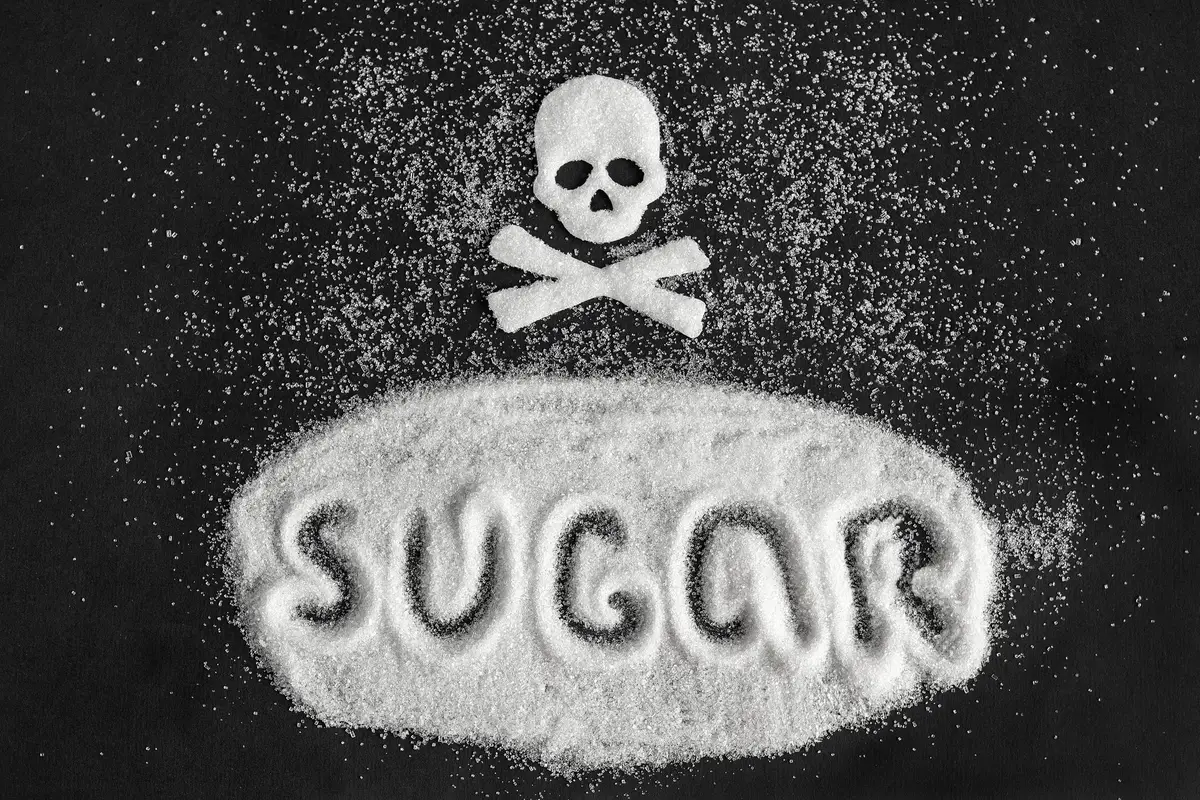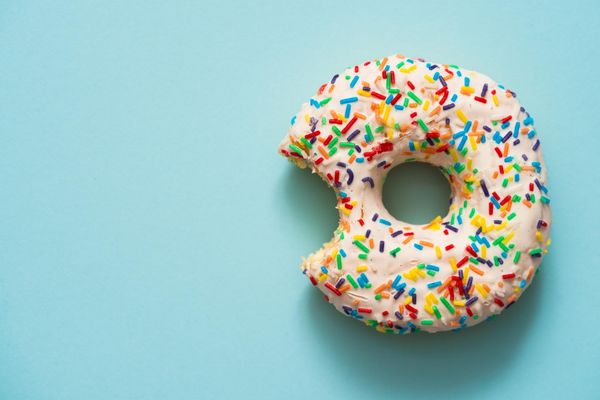A couple months ago, Neely Stasik was walking down the street in Chicago when she ran into a few friends she hadn't seen in years. They were dying to know: Did she still consume crazy amounts of sugar like she did in college?
“In my 20s and into my 30s I was eating candy all the time,” Stasik recalled. “But I didn’t know it was so obvious.”
Stasik, now 43, said her affinity for jelly beans by the bag probably started out of boredom, but one thing was certain: She loved the way candy made her feel. “I get really high for like two seconds,” she said. “It’s not about taste — I don't think jelly beans really taste good. I was just eating sugar for how my body reacts to it.”
Can we be addicted to sugar?
For women who identify with Stasik’s story, sugar addiction can feel very real. However, in the science world, it’s more complicated.
Numerous studies support the theory that sugar addiction is, in fact, real because processed/sugary foods have the ability to hijack the pleasure centers in the brain, like nicotine or even drugs like opioids. One study found that mice even preferred intense sweetness over cocaine. This fact is less surprising when you consider that certain drugs and sugar both trigger the brain to release dopamine (the chemical that makes you feel good) and you want more of that feeling. Interestingly, women may be more prone to sugar addiction than men: A 2021 study found that female mice were more vulnerable to the addictive properties of sugar than male mice.
In the past, researchers have argued sugar is not addictive because the body does not become physically dependent on sugar the way it does on drugs like opiates. Other research suggests sugar dependence is a behavioral condition where certain emotions, meals or times of the day are the cause of consumption — not an addiction.
Ann Hunter, a registered dietitian at UC San Diego Health, notes that much of the research out there on sugar addiction involves animal studies, but there is no denying that added sugar has crept into our everyday diet and many of us may be consuming more sugar than we think.
“If you sit down to eat an orange, you’re going to have that one orange,” she said. “When you pour a glass of orange juice, you may be consuming three or four oranges plus added sugar.”
How much is too much?
According to the American Heart Association, adults consume an average of 77 grams of sugar per day, which is more than three times the recommended amount for women (about 6 teaspoons or 24 grams of sugar). That may sound like a lot if you’re thinking of spooning that granulated goodness in a cup of coffee, but Hunter said most of the sugar people consume hides in beverages and everyday foods, such as cereal and yogurt and pasta sauce.
The dangers of added sugar
Sugar can get a bad rap but natural sugar found in fruits and vegetables provides much-needed energy to cells. “Added sugar,” on the other hand, is when manufacturers add sugar to a product to help extend shelf life and increase flavor. Studies show this increase in added sugar over the years has contributed to the obesity epidemic and an increase in disease. “In addition to weight gain, the development of insulin resistance, fatty liver elevation and diabetes are just a few serious health conditions linked to excess fructose in packaged foods,” Hunter said.
A 15-year study published in JAMA Internal Medicine also found an association between a high-sugar diet and a greater risk of dying from heart disease.
Dealing with sugar withdrawal
For Stasik, the feeling of a sugar rush was too good to give up until she was in her mid-30s, when she ditched her car and moved to Chicago. She had to walk everywhere and couldn’t deal with the sugar “hangover” that came after eating candy. “I just felt like crap,” she said. Stasik said the first couple days without sugar were the worst and left her feeling extremely weak.
Common sugar withdrawal symptoms include headaches, insomnia and muscle pain. To help deal with the symptoms of sugar addiction, Hunter suggests adding protein and fiber to meals help keep blood sugar stable so you’re less likely to reach for that chocolate bar.
Unfortunately, according to Hunter, replacing sugar with a sugar alternative is not a viable solution because studies show that fake sugar can trick your brain into eating more. “[Sugar substitutes] can actually do more harm than good,” Hunter said.
Break the sugar cycle
In order to break your sugar addiction, the first thing you should do is to learn more about the food you’re eating. “Go down to the ingredient label and see how much added sugar is in there,” Hunter said. Note: Just because you don’t see the word sugar on the list doesn’t mean it isn’t in there. Sugar can hide under many names, including maltodextrin, fructose and sucrose.
Next, establish a diet rich in healthy fats, protein and fiber that can help keep cravings in check. Hunter said the following snack ideas are good, fulfilling options:
1) Veggie sticks and hummus
2) Cottage cheese with tomato, avocado and Everything but the Bagel seasoning
3) Sweet potato fries (baked with olive oil) with guacamole and pumpkin seeds
Hunter also said it’s beneficial to sit with your feelings before giving in to sugar. “Identify the source of the craving and ask, ‘Am I really hungry? Is this an emotion or a reward after a long day?’ Sit with that and try to identify what is making you feel that way,” she said.
Removing yourself from the environment and going for a walk can also help break the cycle, according to Hunter. This tactic worked for Stasik when she started walking dogs for Rover.
“After a week of no sugar, I was like, ‘Wow, I can move faster,’” she said. “And this is why I shouldn’t eat sugar anymore.” Well, except after a super busy Rover day. Then maybe a jelly bean or two is okay.
You might be interested in:
Obesity and Other Health Conditions
Obesity Is a Disease That Can Be Managed in Many Ways
I Fought Generational Obesity by Creating My Own Road Map to a Healthier, Happier Life
Clinically Speaking: Questions to Ask Your HCP About Cardiovascular Disease
Clinically Speaking: Questions to Ask Your HCP About Diabetes and Cardiovascular Disease
- So You Think You Can't … Kick Your Sugar Habit? - HealthyWomen ›
- Signs You Have a Sugar Addiction - HealthyWomen ›






